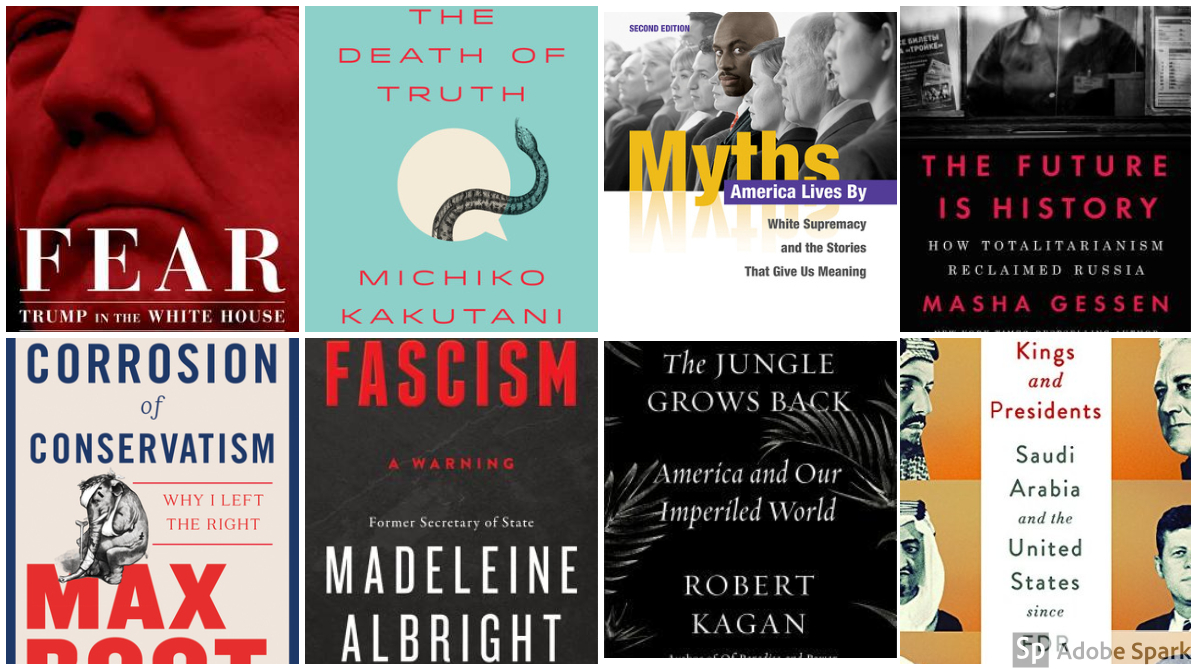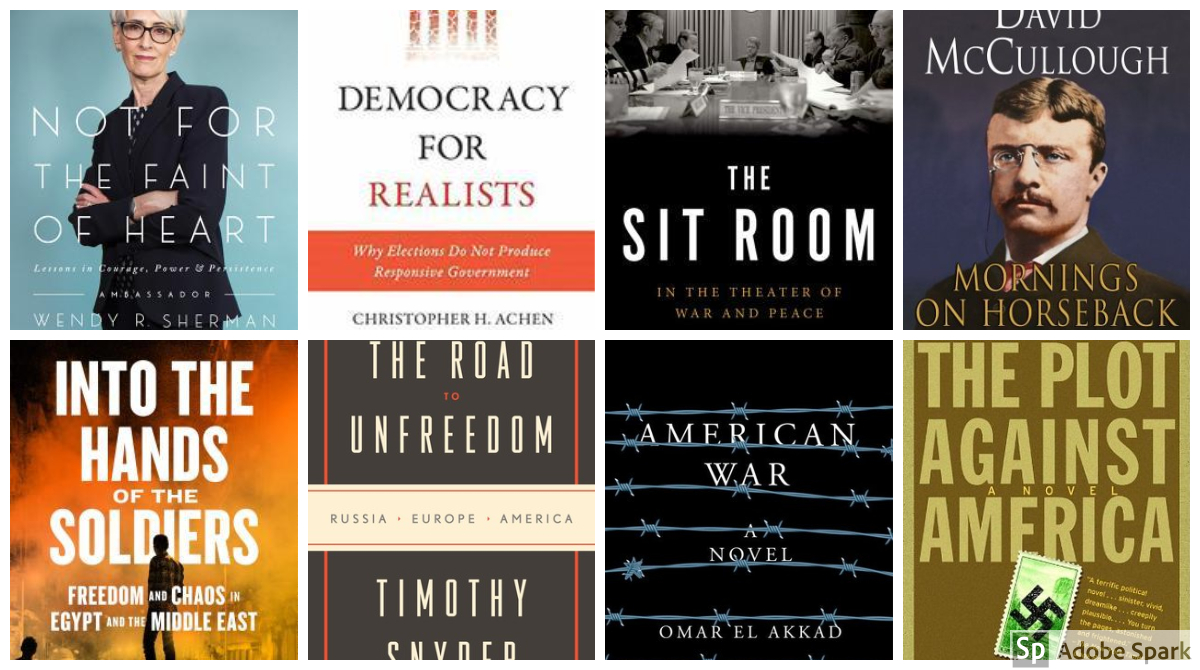
Can you make sense of the Holocaust and the actions of those who took part in it? This is the subject of the inaugural book of the Deep State Radio Book Group, Daniel Goldhagen’s ‘Hitler’s Willing Executioners’ (HWE) published in 1996.
HWE proposes that German society was historically so deeply anti-Semitic that the Holocaust was the natural progression of that anti-Semitism. Goldhagen believes this explains not only how the Holocaust happened but why the general German population willingly participated and supported what Goldhagen calls ‘Eliminationist Antisemitism’.
Goldhagen concentrates on three actions of genocidal killing, the Police Battalions, Jewish ‘Work’ and the Death Marches, to examine the actions of the perpetrators and the complicity of wider German society. By examining the involvement in and make up of non-military personnel in the institutions responsible for these actions, and the reaction of the general population to what was happening, Goldhagen’s analysis and conclusions revived the theory of ‘collective guilt’. As a result the book caused a storm of controversy on publication as it met head on the prevailing theory thatthe genocide was the result of ‘coercion, obedience, peer pressure, bureaucratic indifference, or the fragmented nature of decision making.’ (The Controversy that Isn’t: The Debate over Daniel J. Goldhagen’s Hitler’s Willing Executioners in Comparative Perspective. Gavriel D Rosenfeld 1999. History Faculty Publications. Fairfield University).
Goldhagen is specifically interested in the ordinary people who perpetrated and were complicit in the genocide. He did not deal with the concentration camp system because, he reasoned, there was a large body of work already in existence on the topic at the time of publication. By showing what was involved in the various police actions, the organization of ‘work’ to which Jews were put and the lead up and implementation of the death marches, Goldhagen wants the reader to view the actions of the perpetrators through the lens of anthropology and reach the conclusion that Germans of the time had a completely different thought process, that their views were so extremely anti-Semitic that it made genocide as a solution to ‘the Jewish question’ an entirely reasonable and desirable objective, thereby explaining the willingness of otherwise ordinary people to take part in and support the killing.
The chapters dealing with the various actions make for difficult reading (and are accompanied by some very graphic photographs). Goldhagen’s analysis of the makeup of the police battalions, the structure and locations of the institutions concerned and details of the public actions of those involved in Nazi policies towards the Jewish population make it difficult to argue that large numbers of German society at the time did not know what was happening. ‘When the number of people who were party to the genocidal enterprise, who must have staffed these institutions and occupied these roles, is considered, and when the still far larger number who worked in the larger system of domination…is also taken into account, the inescapable conclusion is the number of Germans who contributed to and more broadly had knowledge of the regime’s fundamental criminality was staggering.’ (p.168)
A number of book group members read this challenging book, Jeff gave expression to the difficult subject matter in his post:
‘I’m discovering that I can’t just power my way through HWE. My brain needs a break from processing so much anger and hatred.’
Adding:
‘I may spend more time thinking about what I’m reading than I do reading it.’
Dave also thought the book was ‘rough going’ but was glad he had read it:
‘The “How could this happen?” sort of feeling you get when you contemplate the level and scale of the atrocity is addressed and I kind of needed that. I’ve done more “how could Hitler have come to power?” type of reading before vs. “how could people have done this to other people?” type of reading. And his description of this pervasive, “demonological” as Goldhagen calls it, anti-Semitism seem to be part of the cause. The ideas of secularization and nationalism coming in and making an already terrible hatred much worse.’
The consensus of opinion was however that readers were not convinced by Goldhagen’s argument that Germany in the pre-war years was seized by a particularly virulent antisemitism. Ray wrote:
‘He failed to give the reader a convincing argument that anti-semitism was a particularly strong in Germany. I’d be interested to see a study comparing anti-Semitic thought in throughout Western Europe in the 19th and early 20th centuries.
And Dave was concerned:
he is so clearly out to present a single point of view and seems to do it unfairly … It felt like I was being propagandized against people who are German,
The book also proved tough in another way – the style in which it was written. The book started life as an academic paper which may account for some issues of style, but it definitely required a good editor for the transition to book form for general consumption. Dave picked up on issues not only with the way the book was written but the message Goldhagen is seeking to convey:
‘It’s so repetitive. And the academic style is strange. You expect that style in something maybe more fair and rigorous in argument. But he is so clearly out to present a single point of few and seems to do it unfairly.’
Despite issues with the laboriousness of the text and the one-sided view presented, I found:
‘the subject matter of HWE manages to rise above these shortcomings. The chapters dealing with the police battalions, death marches and Jewish ‘work’ were compelling and are important. Whilst we all know on an intellectual level the horrors of the holocaust Goldhagen’s extensive research made the events very real and immediate.’
Interestingly, @JackRossiterMun on twitter said that he had used his reading of the book as a way into the poetry of Fatimah Asghar and in particular her poem ’If They Come for Us’ which clearly references Martin Niemöller’s words ‘First they came…’ (Niemöller is himself a controversial figure in the story of the Holocaust). Fatimah’s poem (which appears in her book of the same name published in 2018) can be read here:
https://www.poetryfoundation.org/poetrymagazine/poems/92374/if-they-should-come-for-us
And Jack’s podcast, Close Talking, discussing the poem can be listened to (and subscribed via) here as we are not podogamous:
https://www.stitcher.com/podcast/close-talking
This was a difficult book both in its subject matter and its style and presentation, so I would like to thank those members of the Deep State Book group who made the journey through this book together. The conversation formally concluded at the end of October but the thread will remain open in the folder for past books so that comments, impressions and thoughts can be added over time by others who read the book.
October’s book may also prove a difficult read due to the realism of the fiction presented to us in Jeffrey Lewis’ (@armscontrolwonk) ‘ The 2020 Commission Report on the North Korean Nuclear Attacks Against the United States’. Prescient and terrifying, it is leavened with moments of humour but may be too close to what we know of the workings of the current administration for comfort. I know a lot of Deep State Nerds have read and are reading this so do leave us your thoughts over on the book’s thread in the home of the Book Group on Goodreads [insert link] or tweet your thoughts to @state_book. More on this next month.
November’s book, which we have just started reading, The Perfect Weapon, by David E. Sanger.
Reading goes on for two months, therefore you still have plenty of time to get the book and join the conversation. It’s an immensely readable and slightly terrifying account of just what is going on, and what is possible, in the very connected world in which we live. Highly recommended!
During October we also chose our book for December. There were again a large number of suggestions:


Three books tied in the top spot went on to be part of the final twitter poll:
Fascism: A Warning (Madeline Albright) made its second appearance in our polls
Democracy for Realists: Why Elections Do Not Produce Responsive Government (Christopher H Achen & Larry M Bartels)
The Jungle Grows Back: The Case for American Power (Robert Kagan)
Polling closed at the end of October and the book chosen for December is, Facism, A Warning, by Madeline Albright.
Use the link above to purchase the book to be ready for our December read.
Our thread for suggestions for January’s book is open for recommendations and will close at midday GMT on 16th November.
Finally, it has been suggested that we either alternate between a fiction and non-fiction book or read two books a month, one fiction and one non-fiction. I have opened a thread over on the group home page for members to air their views, please feel free to leave a comment on that or any other thread. I may run a short poll as an easy way to let members choose what they want to do – this is a democracy after all!
Please note that as an Amazon Affiliate, we earn from eligible purchases.






